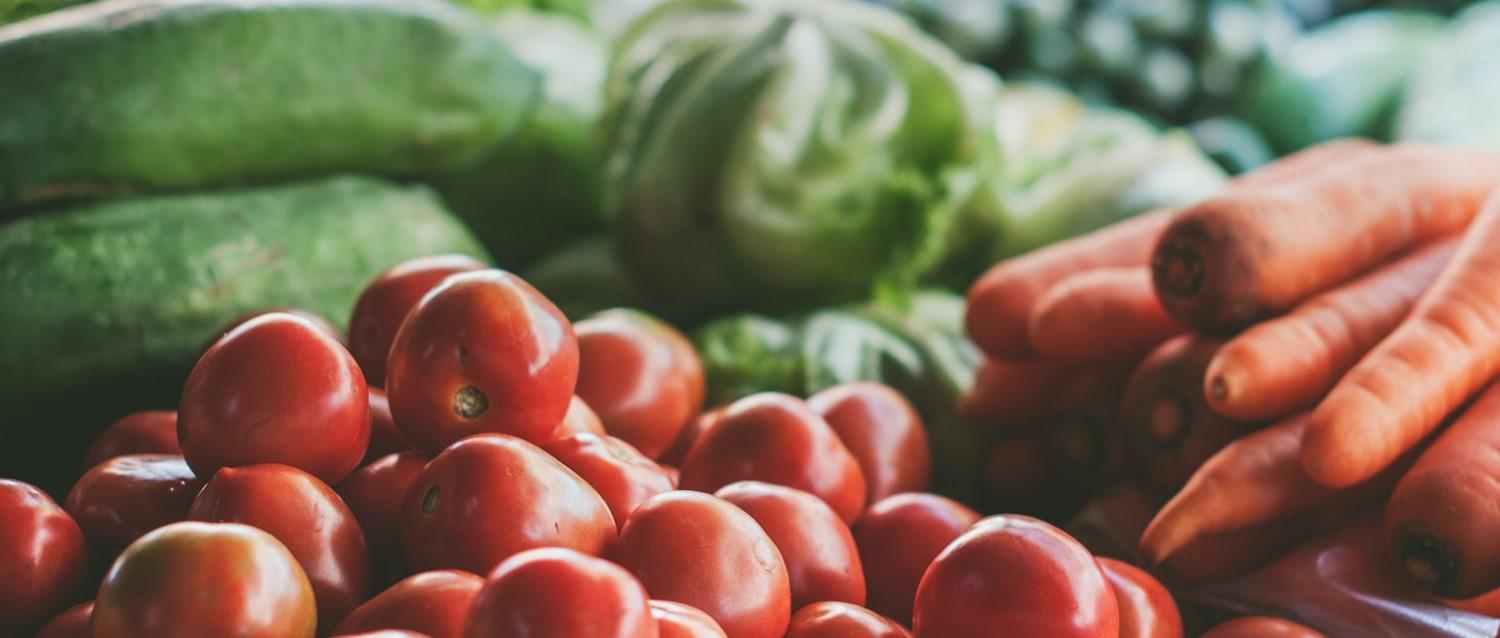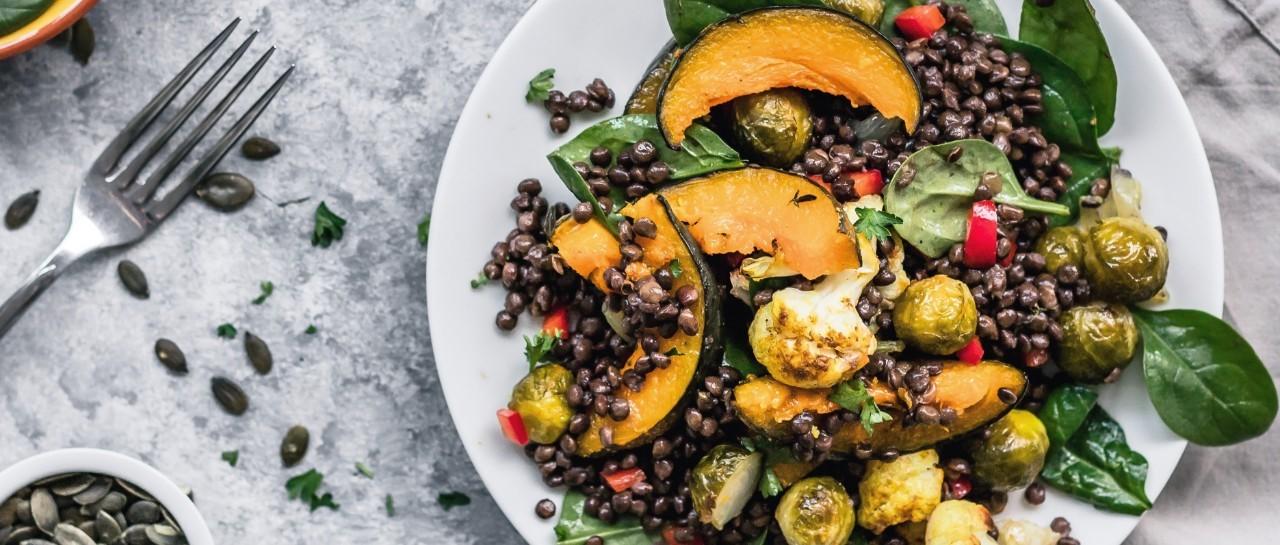
Diabetes diet: managing type 2 diabetes
Peer reviewed by Dr Sarah Jarvis MBE, FRCGPLast updated by Amberley DavisLast updated 21 Feb 2024
Meets Patient’s editorial guidelines
- DownloadDownload
- Share
- Language
- Discussion
If you have type 2 diabetes it is often difficult to know which foods you should or shouldn't eat. Here we explain the key elements to a diabetes diet to help you prevent or delay associated health problems, and address some common myths around eating with type 2 diabetes.
In this article:
Research has evolved so much in the past decade and so has the dietary advice. So what should you eat to manage your type 2 diabetes?
Continue reading below
Is there a special diet for type 2 diabetes?
In short, the answer is no, there's no specific or special diet that people with type 2 diabetes need to follow other than eating regular healthy and balanced meals. This means eating foods in the right amounts from all the main food groups.
Fruits and vegetables
Fruit and veg can be enjoyed fresh, frozen or tined in natural juices. Try to include different colours and varieties. Fruits and vegetables are full of vitamins, naturally high in fibre, low in fat and great for helping weight loss. As fruits are higher in natural sugars, it is best to eat them with something that is high in good fats like Greek yoghurt to slow the surge in sugar in your blood stream. It is also best to eat more vegetables than fruit because of this higher sugar content.
Eating at least five portions per day - aiming for 3 veg and 2 fruit options, can help to reduce the risk of heart disease and certain cancers. And, importantly, they taste delicious -try putting more fruit and veg into your meals or having them as a healthy snack in between?
See also the separate article Sticking to a plant-based diet lowers type 2 diabetes risk.
Starchy foods
Starchy foods include potatoes, bread, rice, pasta and other grains.
Starchy foods are broken down into simple sugars in the body. They tend to be the body's main fuel source. On average, we get around half of our total daily calories from this group.
Some people with type 2 diabetes prefer to follow a low-carbohydrate diet - between 50 g-130 g a day to help control spikes in their blood sugar or help with weight loss. You can be supported by your healthcare professional if this is something you're interested in trying.
Some people have even managed to put their type 2 diabetes into remission - in other words, their blood sugar is in the normal range without using medication - part of which is with a low-carb diet.
Importantly, not all starchy foods are broken down in the body the same way. Some foods - particularly 'refined' carbohydrates - are broken down very quickly, resulting in sharp increases in blood sugar. This is not ideal if you have type 2 diabetes, as it can leave you feeling unwell or sluggish in the short term and lead to complications in the long term if blood sugars are consistently high.
Because of this, we recommend wholegrain carbohydrates like seeded bread, whole oats and brown rice, ideally combining them with some protein. This helps to avoid sharp increases in blood sugar.
The glycaemic index (GI) is a ranking system that determines how slowly a food is broken down in the body. Foods with lower GI numbers release more slowly into the bloodstream. Any changes to your carbohydrate intake should be used in combination with healthy eating.
Protein foods
Protein foods include lean meats, eggs, fish, beans and pulses.
Protein requirements are the same whether you have diabetes or not. However, if you have type 2 diabetes, you're at higher risk of heart disease. It's therefore advisable to choose lean proteins and prepare in a way that avoids using lots of fat, like grilling or roasting.
Aim to include 1-2 portions of oily fish in your diet each week. Oily fish, including salmon, fresh tuna, sardines, herrings and pilchards, have been shown to be protective of your heart.
Plant-based sources of protein such as beans and pulses - like chickpeas, kidney beans, lentils, black-eyed beans - are full of a type of fibre that helps to lower blood sugars and cholesterol: this means they can play an important role in helping to manage diabetes.
Dairy and alternatives
For example, milk, yoghurts and cheese.
This group is the main source of calcium and should be included in your daily diet.
It is advisable to opt for full-fat options as they are less processed, or reduce portion sizes. Natural Greek yoghurt sweetened with fruit is an ideal snack or dessert choice.
Fats and oils
For example, cooking oils, margarines and butters.
Our bodies need fat, but it needs to be the right type of fat and in small quantities. We rely on our diet for fat-soluble vitamins A, D, E and K and essential fatty acids.
We should all try to minimise our fat intake but when you do eat fatty foods, swap saturated fat for unsaturated where possible.
Choose healthier fats such as olive, rapeseed and sunflower-based oils which are cardioprotective as opposed to ones high in saturated fats such as lard, ghee, butter, coconut and palm oil.
Salt and alcohol
It's also important to reduce your intake of salt - opt for lower-salt alternatives where possible and consider using spices and herbs to flavour your food naturally.
Keeping an eye on your alcohol intake is important to maintain a healthy lifestyle. Adults are advised not to drink more than 14 units of alcohol each week. You should spread your intake across several days with alcohol-free days in between. If you're pregnant, you should avoid drinking any alcohol.
Do I need to lose weight?
Carrying extra weight plays an important role in the development of type 2 diabetes.
If you are overweight and have type 2 diabetes, losing even as little as 5-10% of your body weight and maintaining that weight loss level can help to manage your diabetes better and reduce your risk of long-term complications.
Research by Diabetes UK shows losing up to 15 kg can put your diabetes into remission1.
Continue reading below
Common type 2 diabetes diet myths
Do I have to choose special diabetic diet foods?
No. There is no evidence to suggest such foods offer any benefit over regular healthy eating.
Am I allowed to eat sweet fruits like bananas, grapes or mango?
Absolutely! All fruits are allowed. While fruits do contain natural sugars, these are processed differently in the body to refined sugars. Grapes are very high in sugar, whilst you can still eat them, portions should be smaller.
It's best to avoid extremely high intakes, but fruits can be a great snack especially if they are replacing high-fat and sugary foods like cakes and biscuits.
Fruit juices, fruit smoothies and dried fruit have higher sugar concentrations and if consumed, should be in moderation.
Can I have red meat?
There has been a fair amount of research on red meats - and in particular processed type meats (sausages, bacon, burgers, hot dogs) - that has shown increased consumption can increase the risk of certain cancers2.
Although there is no official guidance on how many servings of red meat a week are appropriate, we know that lean red meat is a good source of protein, iron, zinc and B12. On balance, the take-home message is to eat red meat sensibly, meaning not to eat too much or too often. Diabetes UK recommends eating no more than 70 g of red meat a day - around 5 tablespoons of cooked mince or a small burger.
Do I have to give up sugar forever?
You do not need to cut out all sugar but it is advisable to cut down on refined sugars, foods with added sugars, and highly sweetened foods like soft drinks, chocolate, cakes and biscuits, especially if your current intake is high. With or without diabetes, we should all be eating less refined sugars which can contribute to weight gain and obesity, heart disease and dental issues.
Further reading
Patient picks for Type 2 diabetes

Diabetes
Sticking to a plant-based diet lowers type 2 diabetes risk
People who follow a predominantly vegan diet may have a lower risk of developing type 2 diabetes.
by Ashwin Bhandari

Diabetes
Can diet drinks cause type 2 diabetes?
We're all used to the headlines about the 'global epidemic' of type 2 diabetes. We should all know that completely unlike type 1 diabetes, getting type 2 diabetes is largely about lifestyle.
by Dr Sarah Jarvis MBE, FRCGP
Article history
The information on this page is peer reviewed by qualified clinicians.
Next review due: 21 Feb 2027
21 Feb 2024 | Latest version
21 Apr 2021 | Originally published
Authored by:
Sarika Mongia, RD

Ask, share, connect.
Browse discussions, ask questions, and share experiences across hundreds of health topics.

Feeling unwell?
Assess your symptoms online for free